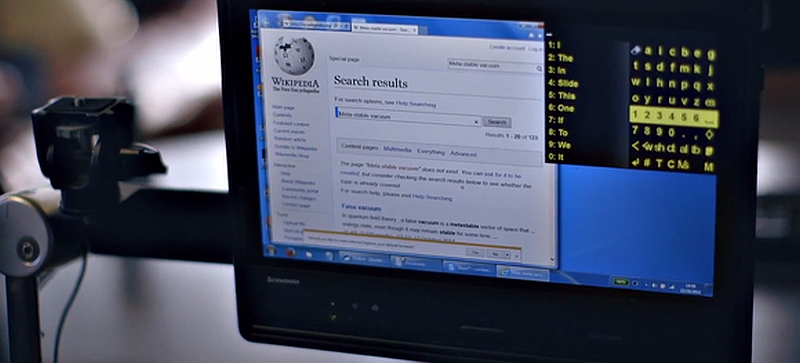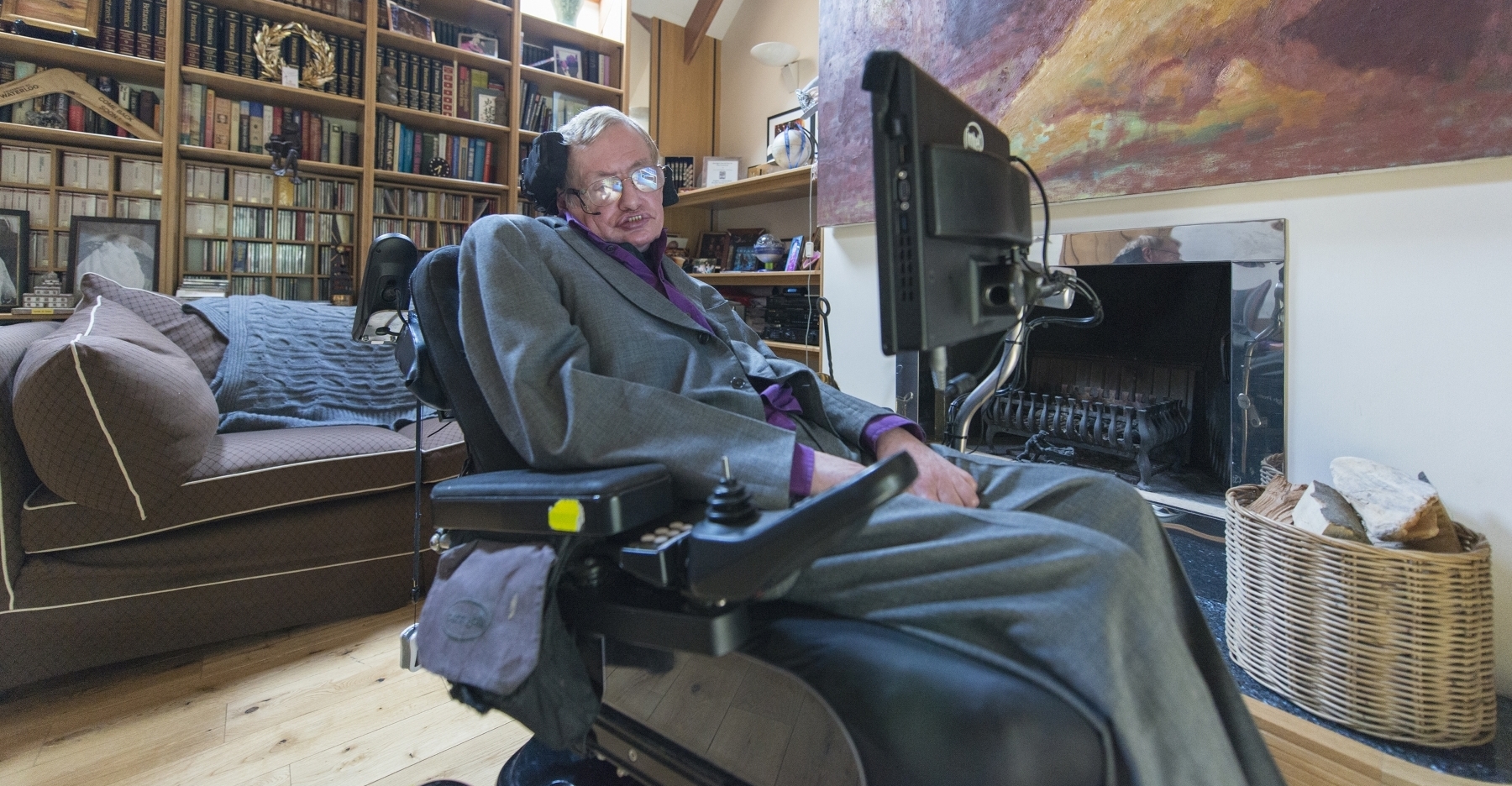Stephen Hawking’s speech system gets an upgrade, comes with dire warning

This week there are two important stories, both relating to Stephen Hawking and to topics we have discussed previously in class. The first involves an upgrade to the system he uses to communicate, and the second is a dire warning from the man himself.
First, regarding the system he uses to communicate. For the first time in twenty years, it has received a major overhaul in how it operates. The story was all over the place, however none of the articles about it did a very good job in discussing how it actually works. Instead, they all mentioned a cheek-operated switch attaches to an infrared sensor on his glasses that lets him use the system. That’s a non-explanation, and even the person involved directly with the process did a terrible job of explaining it as you can see in the video on this USA Today page, so hopefully I can add some additional detail that will help explain how it operates.
It’s true that because of his affliction he only has relative control over the muscles in his cheek, and that is how he interacts with his PC. Via an infrared switch on his cheek, which communicates with an infrared receiver on his glasses that then sends a signal to a USB key on the bottom of his wheelchair that then communicates the choice to the PC, he can make selections on a screen. You can see the sensor in his picture below, and it works like this:
 A grid of letters/actions is superimposed on his screen (you casn see it, in yellow/black, in the header image), and the top half and bottom half of this grid are highlighted in alternating turns. When the part of the grid that contains the letter or action he wishes to select is highlighted, he moves his cheek, and the change in brightness in the infrared sensor on that switch is communicated o the sensor in his eyeglasses, which then makes the selection.
A grid of letters/actions is superimposed on his screen (you casn see it, in yellow/black, in the header image), and the top half and bottom half of this grid are highlighted in alternating turns. When the part of the grid that contains the letter or action he wishes to select is highlighted, he moves his cheek, and the change in brightness in the infrared sensor on that switch is communicated o the sensor in his eyeglasses, which then makes the selection.
Once one half of the grid has been selected, the items in the grid will begin to be highlighted one by one, and when the highlight passes over the selection Dr. Hawking is looking for, he moves his cheek again and the selection is made. This can include letters and numbers as well as actions such as ‘Open’ or ‘Print,’ and even allows for mouse movement. Here’s a video:
The system has been improved, and has now been updated with predictive text powered by SoftKey, which apparently has improved his typing speed by 20 percent. By analyzing his typing and word patterns, the software can predict which words are likely in a sequence (the common example being the word “hole” is likely to appear after the word “black”) and thus reduces the letters he has to type. We’ve been using this type of technology for years, but he is only getting it now. From what I understand, he is surprisingly averse to new technology being introduced into his system, but this time Intel worked with him directly and he was more open due to that inclusiveness. He only mandated his distinctive voice stayed the same. You can read the press release here.
The other bit of news is that Dr. Hawking is warning that advanced Artificial Intelligence could be the death of the human race. When anyone else says it, it’s an eye roller. When Stephen Hawking says it, well…
He didn’t think black holes were an issue with the Large Hadron Collider, currently operating at CERN in Switzerland, which also happens to be the birthplace of the World Wide Web. And it appears he was right.
But AI has him concerned, and if Stephen Hawking is concerned, perhaps we should all be. We have talked about this a lot in class, and we’ve talked about the potential ramifications and related issues, and it seems those concerns are shared by others. Specifically, he feels AI, once sufficiently designed, will be able to continuously redesign itself as necessary at a very fast pace, somethings human can’t do since they are subject to evolutionary steps. And when the capabilities of technology get to the point that they can think for themselves, it will no longer be us who determines whether or not we need technology, but rather technology that determines whether or not it needs us.
Fun stuff. Until the Terminators come.

